The Ultimate Africa Packing List (Plus FREE Printable Checklist)

Deciding what to pack for Africa, especially if you’re travelling long term, covering multiple countries with different dress codes, cultural considerations, weather conditions and temperatures, can feel overwhelming!
As you might know, I organise group tours, and one of the most common questions I get is: What should I pack for Africa? To make things easier, I provide a detailed packing list for each trip.
To help you get started, I’ve compiled all of those lists into one comprehensive Africa packing list below and I’ve got you covered for pretty much every country in Africa and all situations! This list covers both men and women and will work for East, West, North and Southern Africa.
Just to be clear, you don’t need everything on this list. A lot will depend on where you are going and when. And, as I’m getting older, the more I am realising the beauty of packing light.
For example, if you’re just travelling to Zanzibar for two weeks, or going to Benin where it’s usually hot, you’re not going to need a warm jacket, however, if you’re travelling to Namibia or Botswana in the colder winter months, you definitely will need a warm jacket, but you won’t need much in the way of beach clothes!
If you’re not trekking for days on end in the rainy season, do you really need a heavy waterproof jacket? No, you won’t. If you’re not into photography, do you need a tripod? Not really. If you’re not doing any major hikes, you do not need hiking boots.
But, if you are travelling for a long period of time, many of these items will come in useful, so pick and choose the items appropriate to your own trip and travel needs.
PS. Don’t forget to scroll to the bottom to download your FREE Africa Packing Checklist!
Please Note: Some of the links in this post are affiliate links, which will earn me a small commission at no extra cost to you. Affiliate sales help with the running costs of this site, so thank you for your support!
My Complete Africa Packing List – What to Pack for Africa
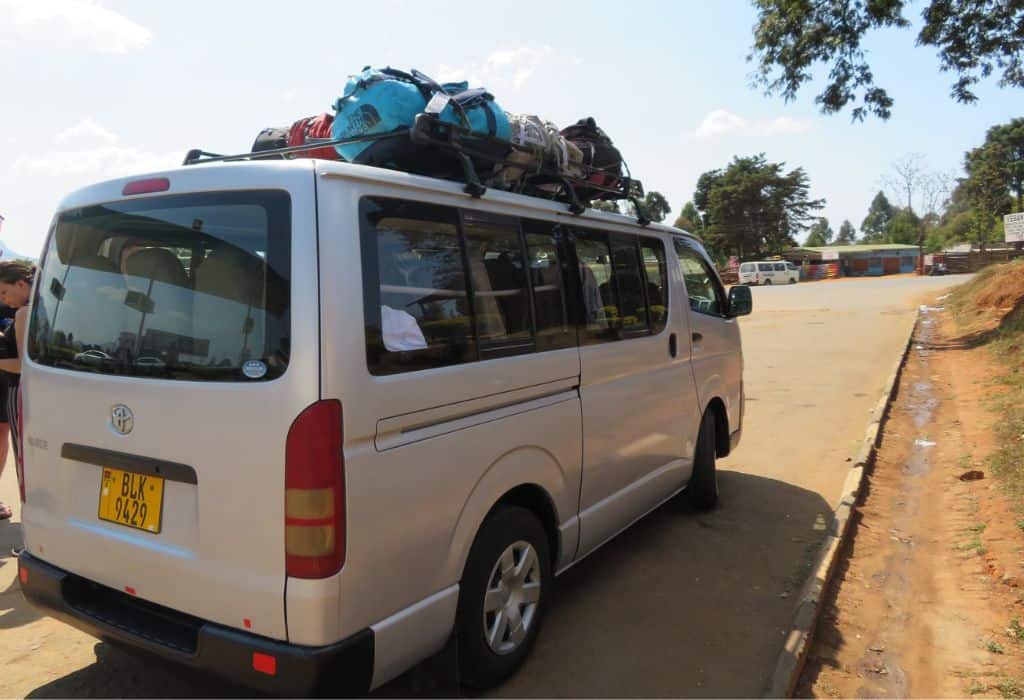
Africa Packing List – Baggage
Main Luggage
When you are travelling around Africa, especially when backpacking or overlanding, your bags are likely to get thrown about, strapped to the roof of a car and absolutely covered in dust, so I’d recommend you invest in a durable and easy to carry rucksack as your main luggage.
Personally, I prefer front-loading backpacks that open fully, rather than top-loading ones, but both types can work. A great choice for Africa is the Osprey Fairview , available in 55L and 70L versions, or 40L if you’re traveling light and need only carry-on luggage. They’re lightweight yet spacious and perfect for the rough and tumble of African travel.
Hybrid backpacks with wheels can also be a good option if you’re not trekking long distances. For example, if you’re on an organized safari or one of my group flashpacking trips where transport is provided door-to-door, a wheeled pack can make travel more convenient.
I currently use a Kathmandu 70L hybrid, and while it’s survived many African trips and is very durable, it’s heavier than a regular backpack and can be cumbersome in sandy or muddy areas. Still, it works very well for short distances and it is very strong.
I’m now transitioning to a setup that works better for my current needs: a durable wheelie carry-on (around 30L) and a smaller checked backpack, around 50L, allowing me to split my luggage, in case my checked luggage goes missing!
You can certainly take a suitcase (but I’d avoid ones that are too solid or very large); however, backpacks are much easier to maneuver and fit better into the back of a safari car, especially on a group safari with many bags, as the drivers usually pack them on top of each other.
If you’re on a private, more high-end safari, you’ll likely have more space and assistance with your luggage, so any type of bag will work. However, if you’re flying on small planes to get to your safari, be aware that they often have strict weight limits and may only allow duffel bags. It’s best to check the luggage requirements in advance!
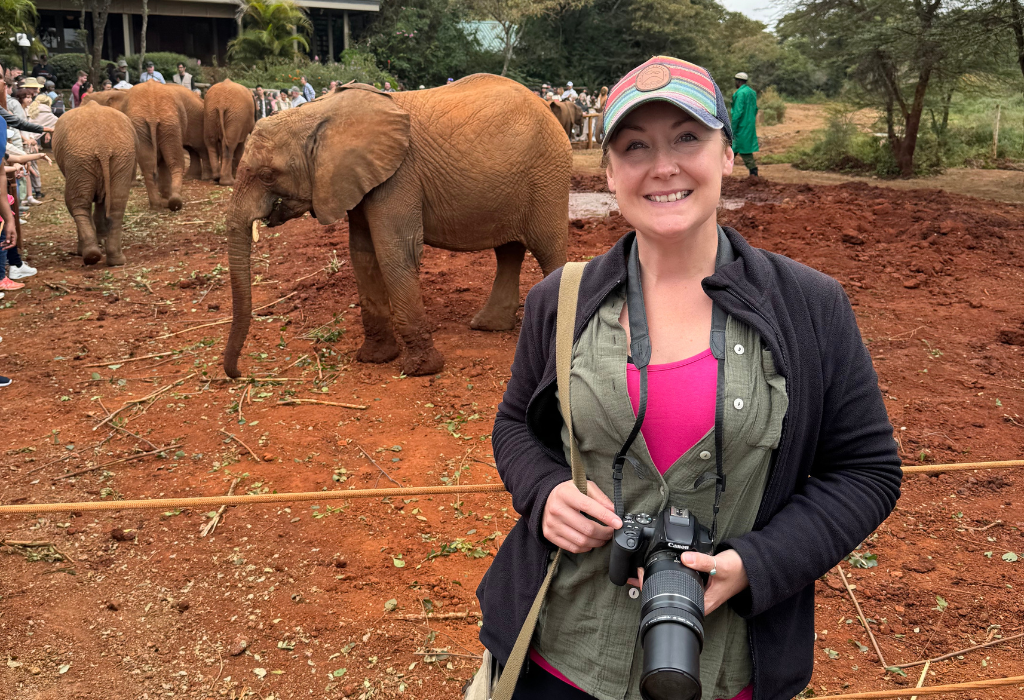
Daypack
Having a smaller backpack or daypack is really useful for activities like hiking or going on safari. On my trips, I typically take either an 18L or 25L backpack. I use the 25L for longer treks where I need a full daypack, and the 18L for most of my regular trips.
If I’m doing a big trek (like Kilimanjaro or Mount Kenya), I’ll take a 25L backpack for my carry-on. If I’m not, I’ll take my wheelie case and pack a smaller, foldable daypack in my luggage for every use.
Handbag/Purse
I also have a crossbody bag by Troop London that I LOVE (I’m wearing mine in the picture above) and this is what I use on a daily basis/for nights out. But I have just bought a Roka London bag which I am very excited to use!
Foldable Duffel Bag
As well as my main bag, I have a small, soft foldable bag and it’s fab. I use this to decant stuff into if I’m going on a short safari to the Serengeti or Chobe National Park, and then I can leave my big bag back at the hotel if I don’t need everything!
Packing Cubes
I am a massive fan of packing cubes when packing for Africa. If it’s one piece of advice I could give you about packing, it’s to separate your stuff. They just make everything sooo much easier to find and keep clean!
I love the Eagle Creek Pack-it Cubes as they are really good quality and they last forever (I’ve had mine for 15 years now and they are still in perfect condition and have survived multiple, long-term Africa backpacking trips), but there are a few different makes to choose from. I also sometimes wrap mine in a sweater and use it as a pillow when I’m camping or on overnight trains. Works like a charm.
I also take a few reusable cotton tote bags. These are great for putting things like underwear in and they don’t rustle, therefore don’t piss off your roommates when sharing (and plastic bags are banned in many African countries).
Wallet
I always have two wallets – my normal everyday small purse, as well as a travel wallet to keep my documents/passport in (see below).
Dry Bag
If you are doing any trekking or any water activities where your stuff is likely to get wet, you could invest in a dry bag like these. Sea to Summit and Earth Pak are good brands. Having a small waterproof phone case is also useful to have so that you can go swimming with your phone.
Toiletry Bag
I take a wash bag that has room for general toiletries and a little bit of makeup. Mine is this one from Lifeventure. I absolutely love it because it has 5 separate compartments, it’s machine washable, it has a mirror and a hook so that you can hang it up away from wet shower floors.
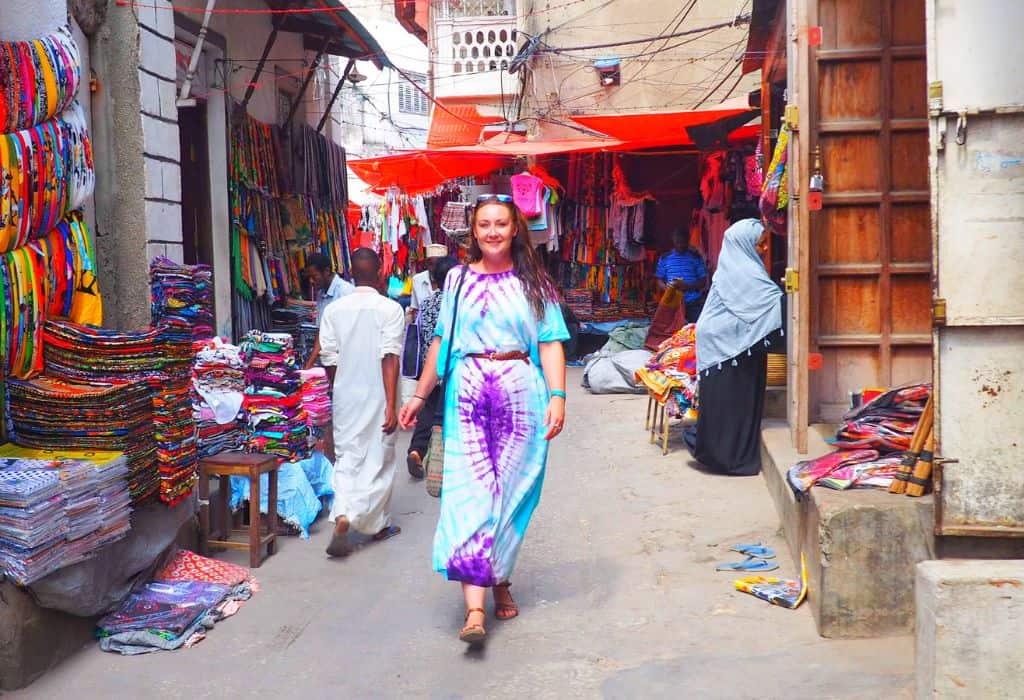
Africa Packing List – Clothing
Choosing what clothes to pack for Africa is tricky. But there are a couple of main things to consider…
Clothing & Packing Tips for Africa
1. Check the Weather
Seems obvious, but before you go, check the seasons/temperatures. Being prepared for the seasons will mean that you’re not carrying around heavy stuff when you don’t need to, or freezing your boobs off when you don’t have appropriate warm clothing.
What most people don’t realise, is that the temperatures vary greatly between countries and seasons and even within each individual country, there are also lots of microclimates.
For instance, in Tanzania in August, it’s really cold on the Ngorongoro Crater rim and you’ll need a down jacket, and sometimes a hat and gloves, especially if you’re camping, but in January/February, it’s not that cold, so a fleece will usually do.
But if you then head to Zanzibar or the coast, it’s going to be pretty hot and humid all year round.
2. Think About Your Activities/Itinerary
On your trip to Africa, you will probably have different occasions you need to pack for – safari, hiking, water activities, beach and evening wear.
For safari, comfortable and layer-able clothing is best and 95% of the time, normal clothes are fine. If doing walking/cycling/horse riding safaris, you’ll need some bush-friendly colours so as to not scare off the animals. You can see my full what to wear on safari here.
Just remember, you don’t need to be in safari gear all the time. It’s fine when you’re on safari, but you’ll look pretty ridiculous walking around Nairobi, Cape Town or most towns (except in Botswana where it’s a bit more normal) in your safari gear.
Will you be spending much time in the water? Then maybe bring some water shoes and don’t forget your swimwear and maybe a rash vest to protect you from the sun.
If you’re doing any type of serious trekking, you can see my specialist Kilimanjaro Packing List here.
Africa can be really dusty, so the golden rule for everyday clothes tends to be not to bring anything that you mind getting dirty, especially if you are travelling overland or going on safari! I’ve lost or damaged many a lovely clothing item on my Africa backpacking trips over the years.
But that’s not to say you shouldn’t bring a few nicer items too, as there will certainly be times when you’ll want to dress up!
To keep my bag as light as possible, I try to bring clothes that are multi-functional and that will work for multiple scenarios.
3. Dressing Appropriately
If you’re going to a place that’s culturally conservative, like Zanzibar or you plan on visiting more local places (villages, schools, markets etc), please be respectful and cover your knees, shoulders/chest and mid-riff.
On the beach and by your hotel pool – dress how you like within reason. Although I wouldn’t wear your thong bikini and DO NOT go topless.
If in doubt, look and see how the local women are dressed and follow suit. You will have some leeway as a tourist but don’t push it.
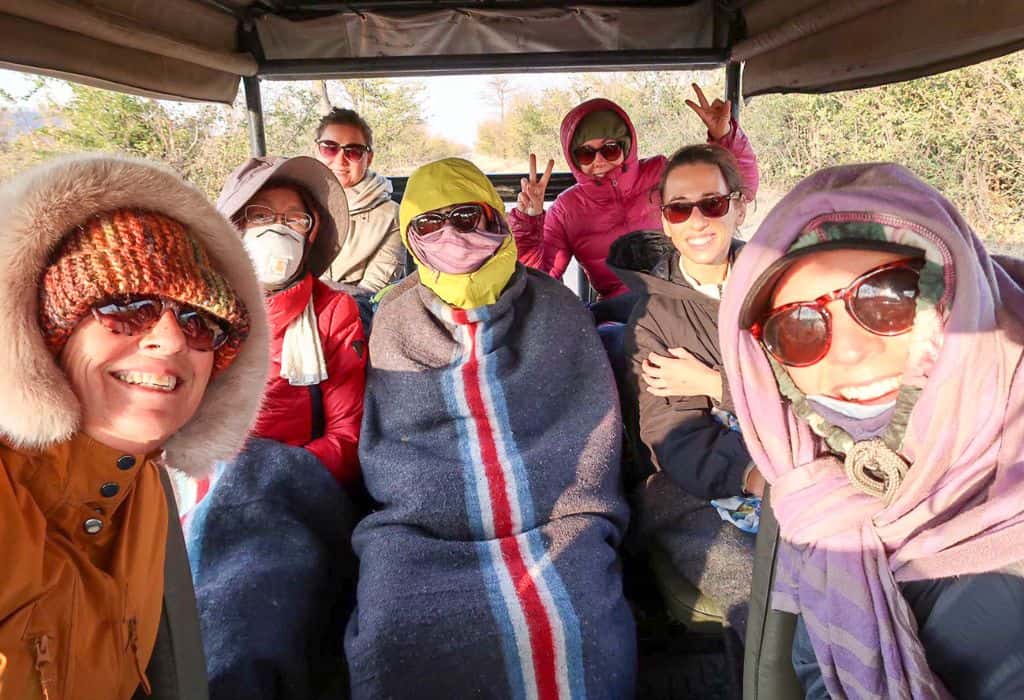
Warm Jacket
You may need a warm jacket, such as a down jacket for some places.
As I’m usually travelling over the British summer (when it’s coldest in East and Southern Africa) I usually take a down jacket. I don’t need it all the time, but it’s good for keeping warm on early morning safaris or evenings around the campfire.
The picture above was me and my group in Botswana in August. Look what we are wearing! Hats, hoodies, down jackets, thermals AND blankets! It was absolutely freezing!
Fleece/Jumper/Hoodie
A fleece or sweater is good to have with you, wherever or whenever you go. Fleece works well as it’s breathable, dries quickly and is warm. I have a fleece with me on every single trip, whether it’s particularly cold or not.
Lightweight Rain Jacket
Unless you are doing some serious multi-day trekking, a lightweight rain jacket will be fine. In the dry season, you may not need one at all – although the weather is so unpredictable these days.
If you’re doing mountain treks, you may need something more substantial, but you may be able to hire them if you don’t want to carry one for the whole trip – check with your trekking company.
Vest Tops/T-Shirts
You’ll live in these, so take at least 3 or 4 t-shirts/vest tops or sports-type vests if you like hiking. I usually always take one nicer cami top to wear with my jeans/leggings for a night out.
Long-Sleeved Shirt
A long-sleeved shirt can be useful to cover up out of respect, from the sun (nice and lightweight – not too hot), from mosquitos or as a little extra warmth at night. You may want to bring one in neutral colours for safari. I have a few linen shirts and live in them!
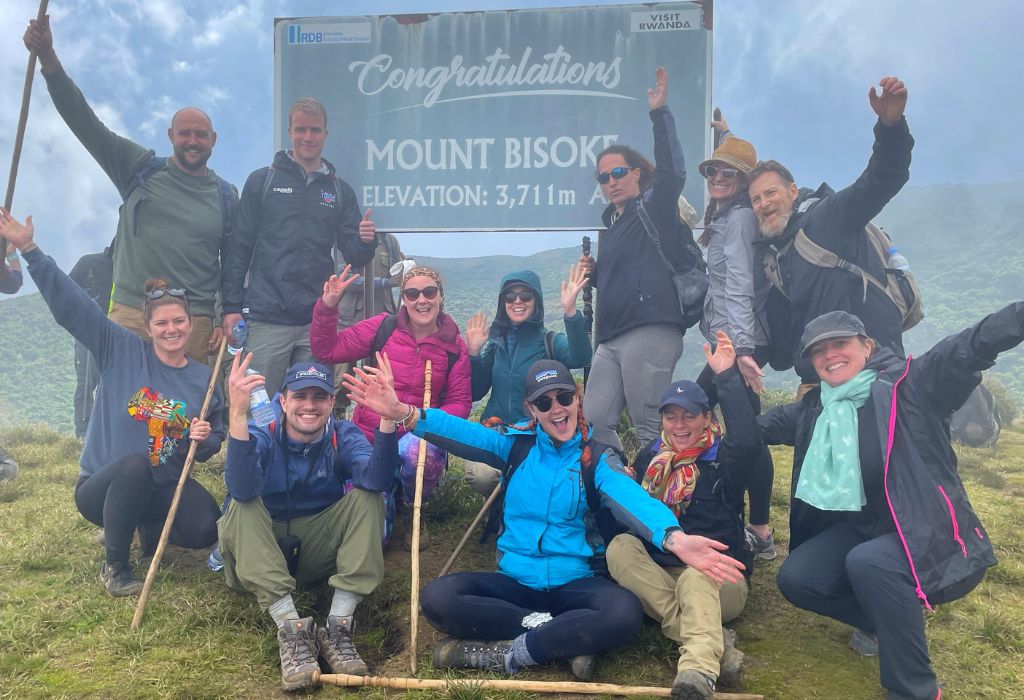
Thermal Top
If travelling in the colder months, especially if camping or trekking, you may want to bring a long-sleeved thermal top too. I have a couple of Icebreaker crew tops from when I climbed Kilimanjaro (they are great as they are really warm, have wicking properties and don’t smell even after a few days of trekking), but there are cheaper ones available.
Comfy Long Pants
Day-to-day, comfy trousers are great to have, especially for long journeys. Hiking pants are also good for hiking and safari.
Leggings
Great for wearing under shorter dresses in areas where you shouldn’t show your knees, for hiking, keeping warm or for protecting you against pesky mosquitoes.
Maxi Dress/Jumpsuit
You will have occasions to dress up, so maybe take a couple of versatile and lightweight dresses. Ones that don’t wrinkle are great! I’m also partial to a nice flowy jumpsuit too.
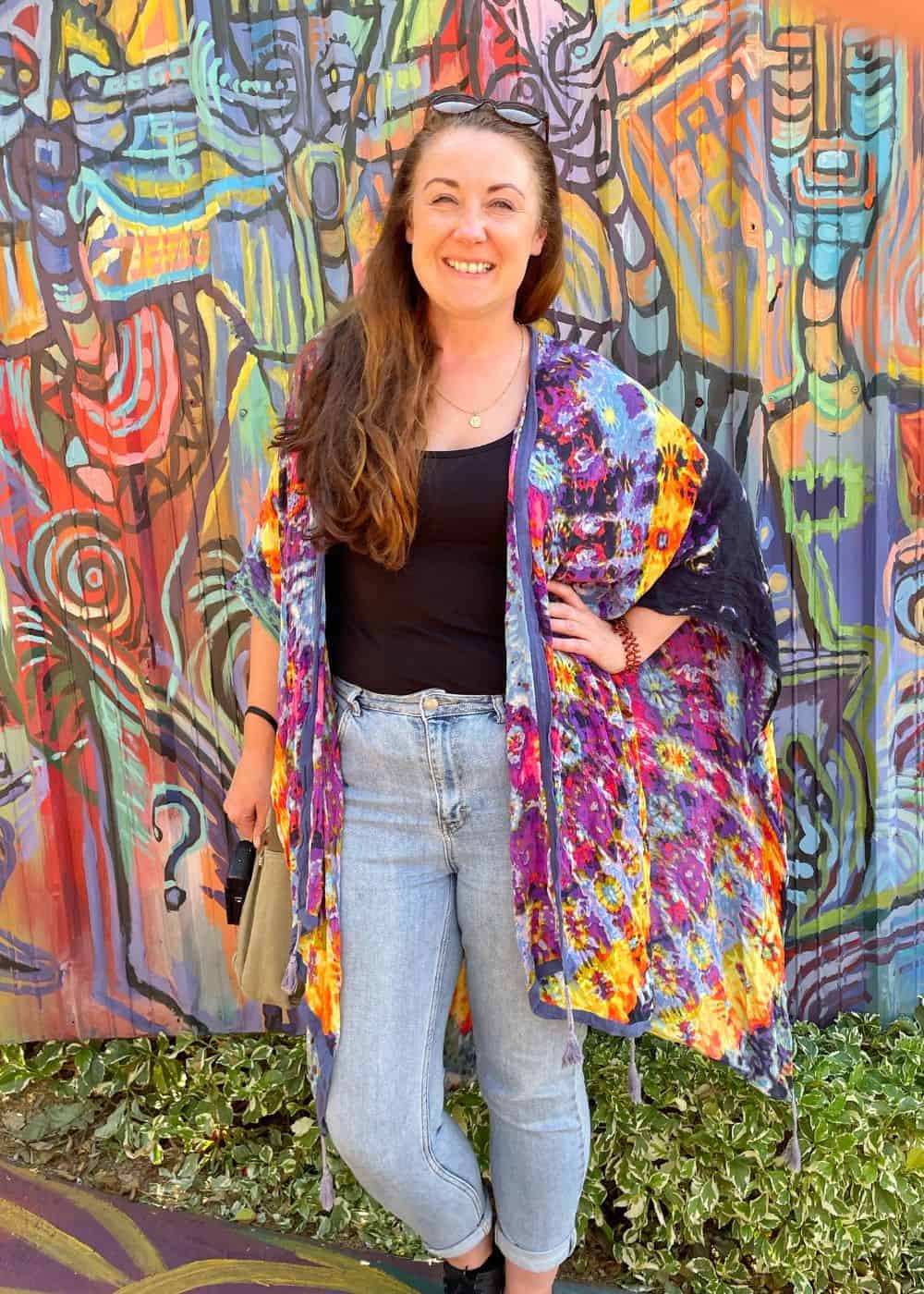
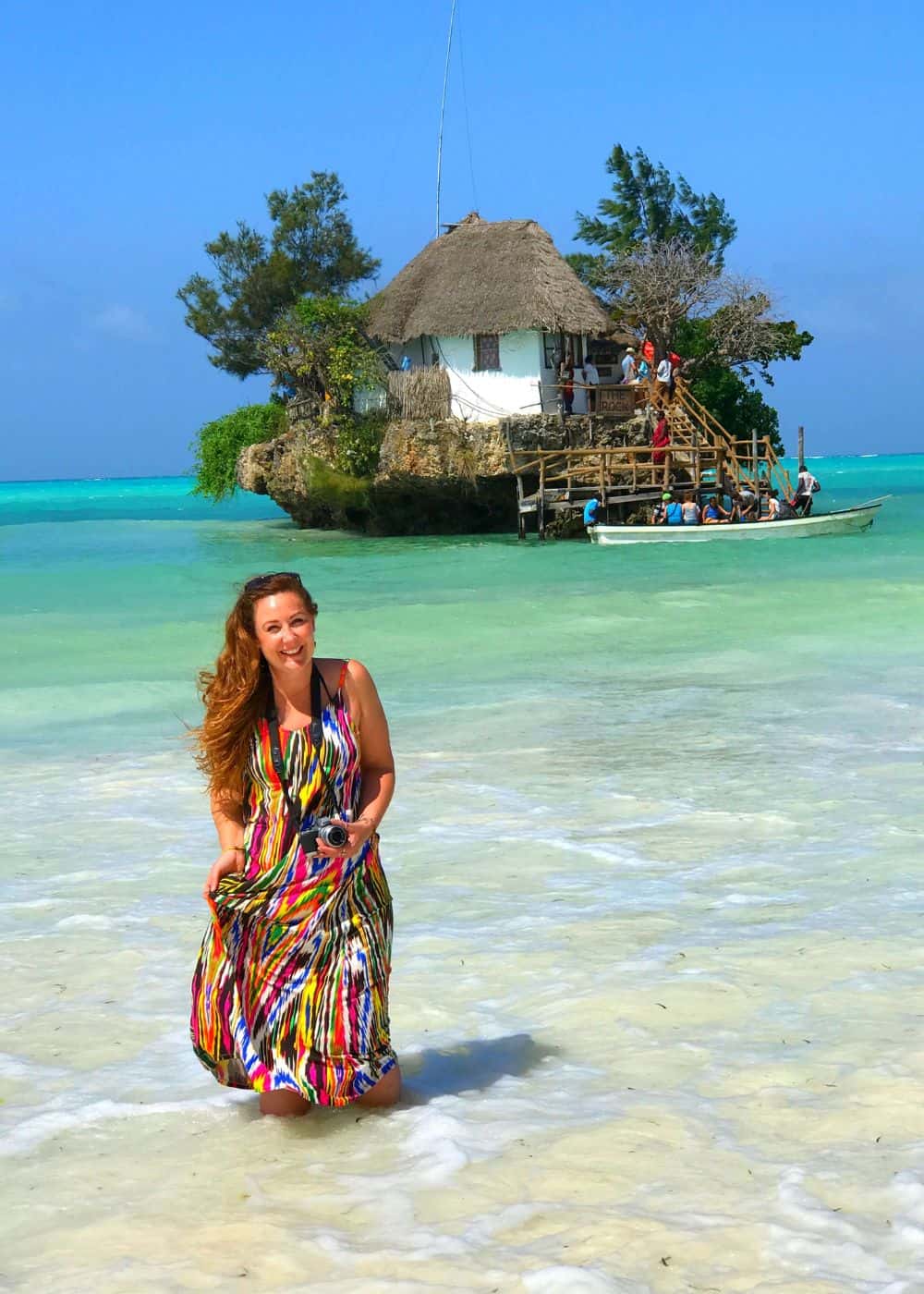
Kimono
I usually take a kimono. These are great for wearing with jeans and a top, or throwing over a dress for warmth or to cover up. They can make pretty much any outfit look glam!
Swimsuit
There will be plenty of opportunities to get in the water, so bring your cozzie.
Pyjamas
Definitely needed, especially if camping, sharing rooms or staying in hostels.
Underwear & Socks
Breathable materials are best! Bring at least one sports bra (for those bumpy safari roads). As well as normal socks, I usually always have a couple of pairs of thick hiking socks too.
Shorts/Cycling Shorts
A pair of shorts or two is always useful for activities like hiking or white water rafting.
Jeans
This is a personal choice. You won’t need jeans all the time, and they’ll be too warm to wear in some places (like the Swahili coast where it’s hot pretty much all the time, or much of West Africa) but really come in handy in others, especially in cities like Nairobi, Johannesburg or Cape Town.
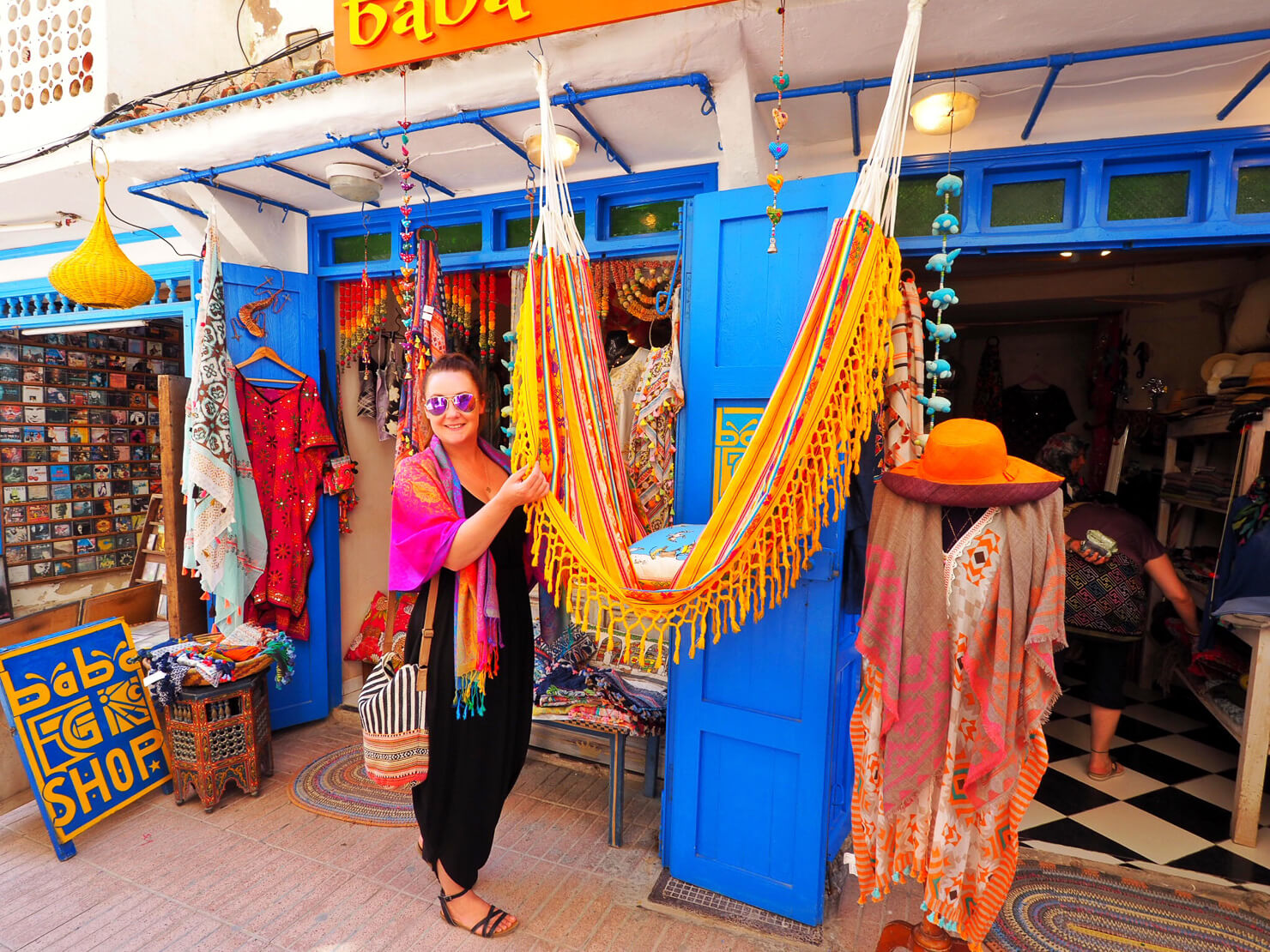
Africa Packing List – Shoes
Flip Flops/Sandals
I sometimes take a pair of flip-flops for around the pool/beach. But… flip-flops are pretty useless everywhere else as they offer little protection and you get thorns popping through them if you wear them when walking around, especially on safari.
If you want something a bit more sturdy, get a sandal like Teva’s, which are more practical as they have thick soles, and can be used for everyday use, hiking and walking through water. You can also wear them with socks at night.
I generally live in Birkenstocks, because I love them. The only time they are a pain is when walking in very sandy/stony places as sand/stone gets stuck in them! If I’m spending time in cities, I also like to take a more dressy pair of sandals, such as my Blowfish Galie sandals. Not really necessary, but nice to have.
Trainers and/or Boots
I always have at least a pair of trainers/sneakers with me. My current ones are waterproof Adidas Terrex hiking shoes.
I tend to wear these in the evenings, or when doing an activity that requires closed-toe shoes, like walking safaris, hiking or walking through the city. Also good for protecting your feet at night on safari.
If you’re doing any major hikes, you may want to bring a pair of comfortable and waterproof hiking boots or shoes. I love my Scarpa boots as they’re so comfy.
Water Shoes
These aren’t essential, but they are incredibly useful for water-based activities. This past year I spent a lot of time swimming in rivers, visiting the Devil’s Pool and playing in waterfalls, so having water shoes saved my delicate feet. I bought this cheap pair but if you have Teva’s (or similar) you probably won’t need these.
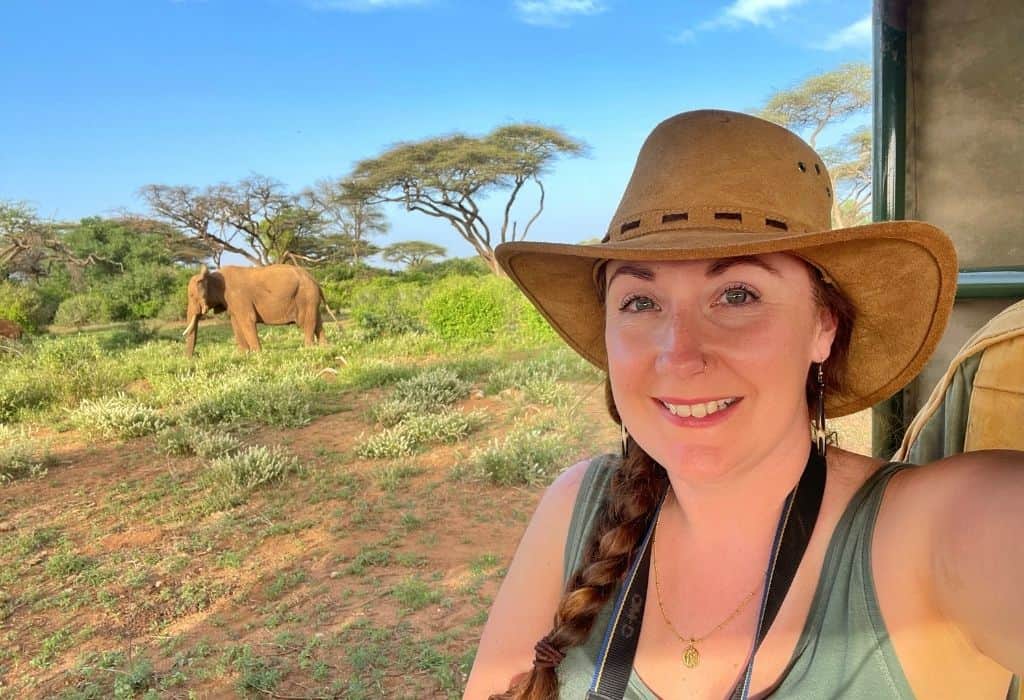
Africa Packing List – Accessories
Sun Hat
The sun can be strong, so protect your face and neck with a wide-brimmed hat. Good for safaris, boat trips, at the beach, hiking etc. One that won’t easily blow off your head easily when in an open moving vehicle is best.
I love the stylish fedora-style hats, but you could also get one of the more typical canvas-type or bushman safari hats. I sometimes just bring a baseball cap, but they won’t protect your neck.
Beanie Hat
Again, not 100% necessary, but if you’re trekking or camping in the desert, or up high on the Ngorongoro Crater rim, a warm hat is nice to have.
Sunglasses & Case
The sun is strong and they’re also good to protect your eyes from the dust on safari. Plus they’ll make you look stylish in your photos.
I’d take at least 2 pairs in case you break one (which I do on every trip) and take a sturdy case so you don’t break them.
Scarf/Sarong
I always have a brightly coloured lightweight scarf with me for extra warmth, to add a bit of style to my outfits or to cover my shoulders with when I need it. You can pick these up in local markets for cheap if you don’t have one.
Buff
If you want to keep the dust out of your hair and nose/mouth, get yourself a Buff or similar (you can also just use a scarf). They’re not the coolest-looking things, but they serve a purpose and are very useful, especially when hiking or on safari.
If you are going on lots of safaris in dusty places (Tanzania, Kenya, Botswana and Namibia are super dusty), you could also bring a dust mask – but that’s your call.
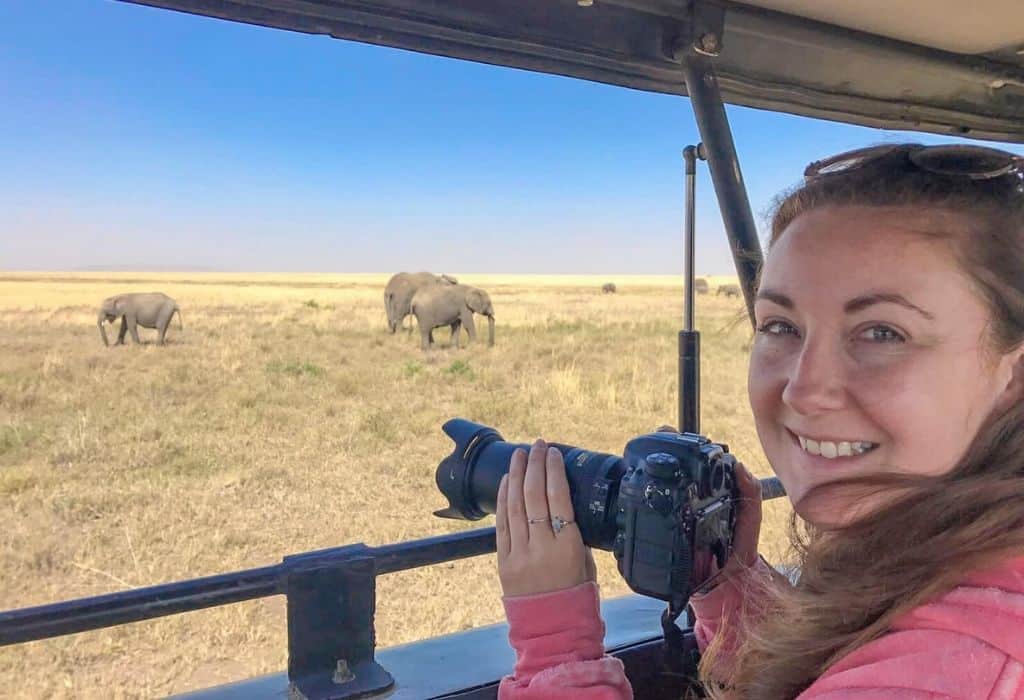
Africa Packing List – Camera Gear
As a blogger, so I tend to travel with more electronics than the average person, so if you aren’t working on the road, you probably won’t need everything I mention, but I’ll give you an idea of what I carry with me below.
Camera, Lenses & Case
Africa is a photographer’s dream, so you’re probably going to want to take a good camera with you.
The first time I went, I took a very basic point and shoot which I regretted. But that was a long time ago and even basic cameras have come a long way since then.
I travel with a Canon 250D. You don’t have to bring a big DSLR or be a professional to get great photos, but if you want to get good pictures on safari, you should at least have a good zoom lens, and by that I mean at least 300mm minimum.
I have this one but there are also options with bigger zoom. I also usually take my regular lens (18 – 55mm) which I use for every day, and a wide-angle lens.
If you don’t want to invest in an expensive camera with interchangeable lenses, you could consider a bridge camera. They often have really good zooms too and much cheaper than buying a DLSR and all the kit.
The quality isn’t quite as good as a DLSR or mirrorless camera but that shouldn’t matter too much to anyone who isn’t a blogger or professional photographer. And their zooms are amazing – but quality usually goes right down at full zoom.
Try something like the Nikon Coolpix B600 (1440mm zoom), Nikon P1000 (3000mm zoom) or the Panasonic FZ82 (1200mm zoom).
Having a camera with wifi capabilities is a good idea too, so you can back up your photos to your phone so you can Instagram away without having to transfer using a computer! And don’t forget to get a good camera case to keep it protected.
Spare batteries for your camera are also worth bringing!
GoPro
Not essential, but having a GoPro (and various accessories) is useful for things like visiting Victoria Falls and any water-based activities.
Memory Cards & Case
Finding (good, authentic) memory cards can be difficult outside of the big cities, so take a stash with you. The last thing you want to do is be having to spend your safari deleting pictures to make space.
I always use the 128 GB SanDisk ones now, they take ages to fill up so you don’t lose crucial time deleting pictures. I usually go through 1 every 3 months.
I also use an old business card holder to keep all my camera memory cards and SIM cards in, but you can also buy specific memory cardholders.
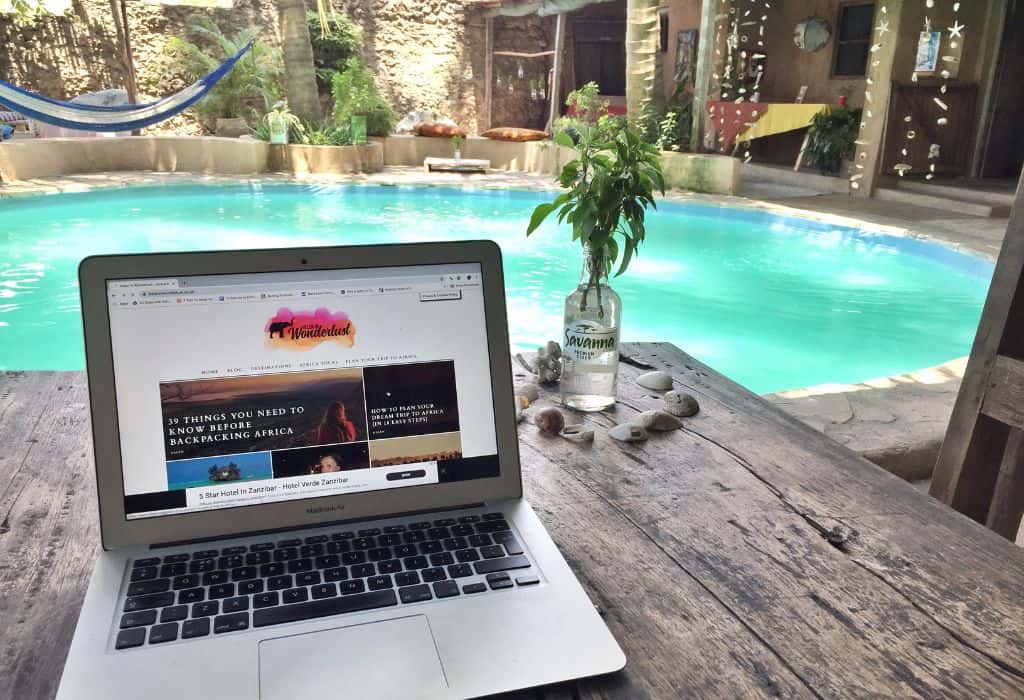
Africa Packing List – Other Electronics
Head Torch
A headlamp is absolutely essential! Brilliant for camping, brilliant for dorms, walking back to your fancy safari tent, brilliant for when the power inevitably goes out – which it will, at some point!
Kindle
You’re going to make a lot of long journeys in Africa, so having a Kindle is great and also means you don’t have to carry heavy books around. If you want to read up on Africa, you can find some of my favourite books here.
Chargers
Don’t forget all your chargers so you can use all your stuff! Camera chargers, kindle charger, laptop charger.
Adapters
British, South African and European plugs are the main plug sockets used in East and Southern Africa. My favourite one is this Skross adapter as it converts British plugs into European plugs and European into South African plugs.
There are also some amazing universal plug adapters available now. You can check the plugs you need for each African country you need here. But if you have British, European and South African adapters, you’ll usually be covered.
Powerbank
You may not always have access to a charging point so having a power bank is great, especially on a long journey. I have this one, which is really heavy but lasts forever.
Phone
I have an unlocked iPhone. If you are tied into a contract, consider getting your smartphone unlocked so you can pick up local SIM cards along the way and then you have the internet at your fingertips!
iPhone Pin
As I travel with an iPhone, I always travel with some kind of iPhone pin so that I can switch SIM cards as needed.
Multiway Extension Lead or Multi-USB Charger
Not essential, but having something that can charge multiple items at once is a bonus, especially at campsites with limited charging points. Some people I know travel with an extension lead, and others have a multi-USB charger (which is smaller and easier to transport).
Laptop/Tablet & Case
A computer is not essential unless you need to work on the road, so if you can leave it behind, then I would!
I have a MacBook Air which I love, although I try not to be on it too much when I’m travelling. Then of course it’s good to have a case to keep it safe and you may think about investing in a protective case.
If you need to work, but don’t want to take a computer, a iPad with a keyboard case is a good alternative.
Hard Drive
I would strongly advise that you back up your photos when you can! I have an ADATA hard drive which has been great so far.
Headphones
Definitely useful on long bus drives when they’re blasting out loud Nigerian movies.
Electronic Fan
This is a new addition to the list. Over the last few years I’ve definitely felt like places are getting hotter, or maybe that’s just my age? Either way, an electric fan is a Godsend when it’s boiling! I usually use mine in West Africa, Swahili Coast and Madagascar.
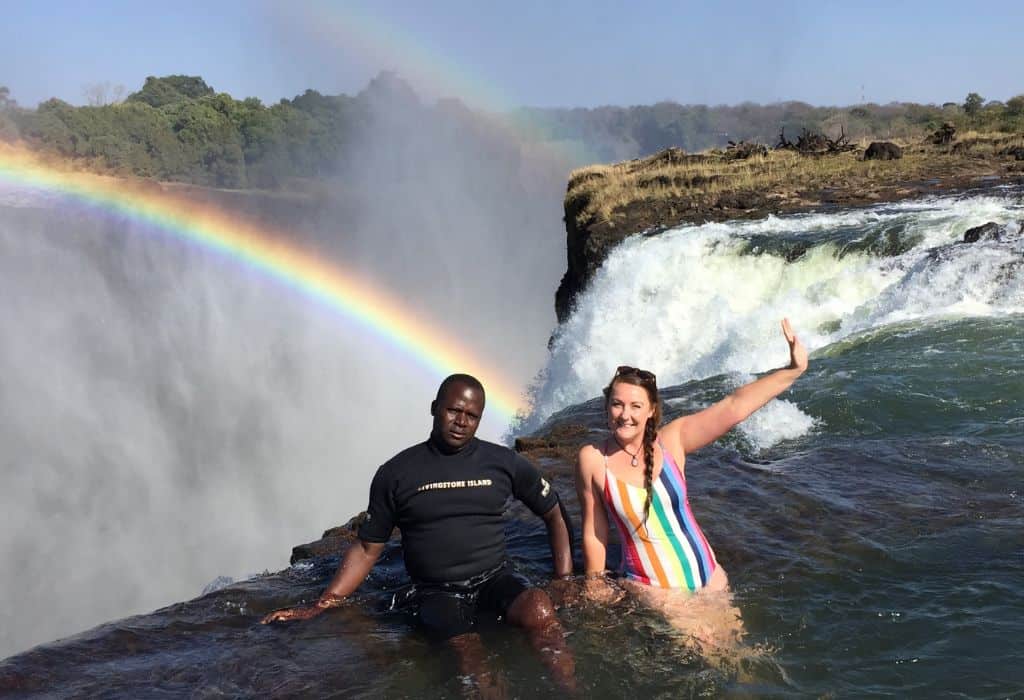
Africa Packing List – Health & Hygiene
You don’t have to take everything with you but if there’s anything in particular that you like to use, I’d bring it from home, as some of your favourite brands may not be available.
But there are big supermarkets in most cities and towns where you can top up a lot of stuff if you run out.
Showergel or Soap& Case
I’ve always just used Dove soap (both for face and body). You can get it in a lot of supermarkets in Africa but if you like a specific face cleanser, I’d take yours with you. I carry my soap in a soap case, which I usually buy from somewhere like Bodycare, Boots or Superdrug.
Biodegradable Wet Wipes
Great for taking on safari to wipe off all the dust. Or for giving yourself a wet wipe bath if you’re camping! Just make sure to get the biodegradable wet wipes!
Face/Body Moisturiser
I always bring a little bottle of my favourite moisturiser with me. I use CereVe SPF 50. I will also often buy face or body oils made with local ingredients (baobab/moringa etc) when I’m in Africa.
Lip Balm
Dehydration and dusty conditions can mean that your lips get very dry, so take your favourite lip balm. I usually take Vaseline and/or O’Keefe’s Lip Repair SPF15 (my favourite).
Shampoo & Conditioner
You can buy shampoo and conditioner in most supermarkets, but again, if you have a very specific one you like, take it with you.
Toothbrush & Case
I always take my OralB electric toothbrush with me in a travel case. This means I also have to carry the charger and I take a plug adapter to charge it just in case there are no shaving-type sockets.
If you take a regular toothbrush, carry it in a toothbrush holder like this one to keep it clean and stop it from getting your wash bag all wet. If you want to be environmentally friendly, consider taking a bamboo toothbrush, like this one. You may also want to pack some dental floss too.
Toothpaste
You can buy toothpaste in most supermarkets, so just take enough to get you started.
Deodorant
Take one with you, but they sell deodorant in every African supermarket, so just take enough to start you off and then you can top up as you go.
Sunscreen
Girls (and guys), look after your skin. Sun lotion can be expensive in Africa so I usually take it with me. I always use at least SPF 30, and now, more often, SPF 50, especially on my face.
For my face, I use the Body Shop Skin Defence Multi- Protection Light Essence SPF 50 PA +++ , Bondi Sands Fragrance Free Face Sunscreen Lotion SPF 50 and Cetaphil Daily Defence SPF 50. I love them because they protect my skin and give it a nice fresh look.
Heel Cream
If you are travelling for long periods, the dry conditions wreak havoc with your feet and within a week or two they will end up a sore, cracked mess. Before you go to sleep each night, just stick on a little bit of Scholl Cracked Heal Cream and you’ll be right!
Make-up
I don’t wear much makeup when I’m in Africa, especially during the day, but for nights out, I take my favourites:
- Maybelline Great Lash Mascara
- Black eyeliner (usually by Rimmel)
- L’Oreal True Match The One Concealer
- MAC Blusher
Hair Brush
I usually take a small Tangle Teezer as they’re really light and take up hardly any space.
Hair Bands
If you have long hair, you’ll want to take a few hair bands as they’re hard to find in Africa.
Razor
You can buy razors in Africa, but I usually take one with me.
Hand Sanitiser
Again, you can buy this in Africa, but it’s good to have some hand santiser with you when you arrive, then you can top up as you go.
Nail Brush
Your nails (especially your toenails) will get really dirty with the dust, so I’d definitely recommend taking a small nail brush to keep you clean and dirt free.
Nail Clippers/Scissors
If you’re travelling longer, you’ll want to take some nail scissors or clippers. I usually take both, as I prefer clippers for my nails and then I use the scissors when I need scissors – which is surprisingly often!
Tweezers
Good to keep your brows looking good and for removing splinters.
Tissues/Spare Toilet Roll
Yes, you can buy tissues and toilet rolls in Africa, but you’ll inevitably stop at the odd toilet that doesn’t have loo roll, so by having some tissues with you, you’ll be good to go…
Bamboo/Reusable Cotton Buds
Compostable bamboo cotton buds or the new reusable type are good to carry with you.
Sanitary Products
Sanitary towels are easy to buy in Africa, but tampons are harder to come by (and applicator tampons are even more difficult to find) and usually only found in the bigger supermarkets and chemists, so if that’s what you use, you may want to take some with you.
However, nowadays, a lot of women are switching over to cups, like the Diva Cup or Mooncup. Just be aware there are different sizes and they take a bit of getting used to, so you will want to try them out before you go.
Contact Lenses & Contact Lens Solution
Getting new contacts in Africa would be difficult pain and contact lens solution isn’t easy to find either, so make sure you take what you need for the duration of your trip.
Eye Drops
Dusty days on safari can make your eyes sore and dry, so eye drops are good to take (or you could use saline solution).
I’ve also had a few eye infections from the dust, so I usually take a small bottle of Brolene eye drops with me, but you could buy something similar from a chemist whilst you’re there.
Prescription Medications
If you’re on any prescribed medicines, take enough with you to last throughout your trip, just in case they’re not available.
Insect Repellent
You can get good mosquito repellent in the cities, but it’s not always readily available, so I usually take a couple of bottles of Jungle Formula with me to start off.
I also really like a South African brand called Peaceful Sleep and tend to use this more than Jungle Formula when I can get it. I find it really effective, it doesn’t contain DEET and smells quite nice.
You can also buy insecticides (like DOOM) that you spray into your room and it kills the bugs.
Anti-Malaria Pills
Speak to a travel doctor/clinic to find out exactly what you need before you go. I always suggest testing your malaria pills before you go to make sure they won’t make you feel super sick.
The non-branded versions are just as effective and a lot cheaper.
Tiger Balm/Bite Cream
If you’re a mozzie magnet, you might want to invest in some anti-itch or bite cream, such as Tiger Balm or Afterbite.
First Aid Kit
I always have a little Lifesystems Explorer First Aid Kit with me. As well as the items that come in the First Aid Kit, I usually add in:
- Plasters/Band-Aids
- Antiseptic/Antibiotic Cream (Savlon/Neosporin)
- Electrolytes/Rehydration Powders (Dioralyte)
- Paracetamol (Tylenol/Panadol)
- Ibuprofen (Nurofen/Advil)
- Pepto Bismol (or similar)
- Loperamide (Imodium)
- Prescription Medications
You may also consider bringing:
- Antihistamines
- Antacids (Gaviscon/Rennie)
- Travel Sickness Pills (if needed)
- Cold & Flu Tablets
- Blister Plasters
- Antiseptic Wipes
- Fibre Powder (Fybogel or similar) – good if you tend to get bunged up when you travel
- Pre/Probiotics
- Aftersun/Aloe Vera
If you’re going to any super remote places you may want to take some water purification tablets or your own syringe kit (although these would only be needed in the worst case).
A lot of the Americans I know travel with antibiotics, but you can pick that type of stuff up when there (usually just over the counter at the pharmacy).
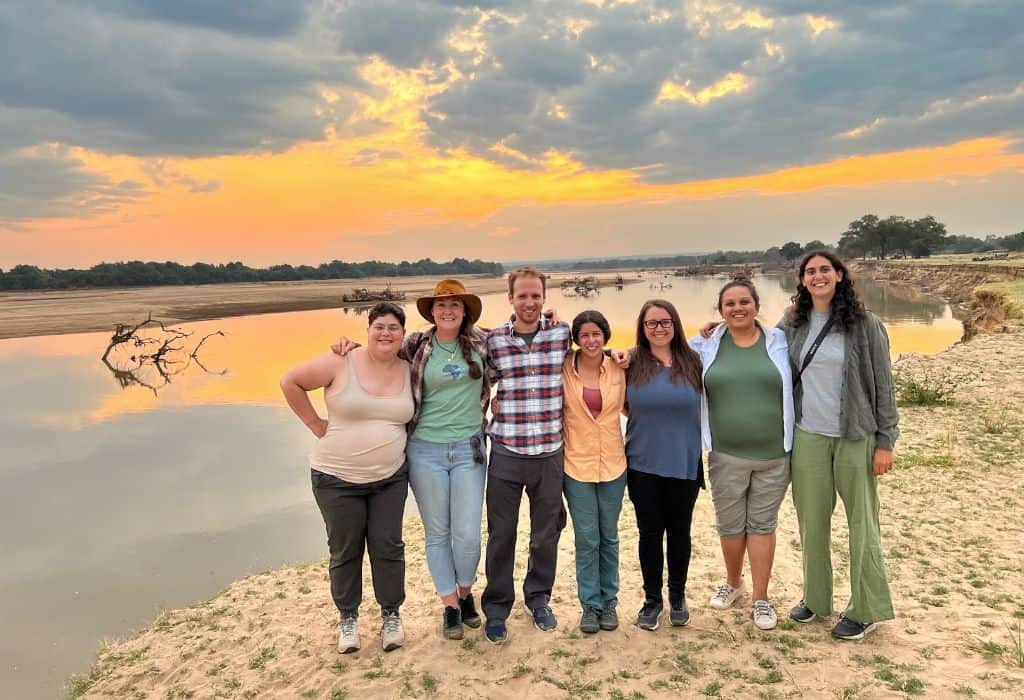
Africa Packing List – Money & Travel Documents
All the important stuff. If there are only a few things you take, these should be it!
Passport
Remember you will get stamped so your passport should have enough pages to get you through your trip. They usually say 2 pages per country you are visiting, however, they will usually stamp more than one stamp on each page. Just make sure you have a few left!
And your passport should be valid for at least 6 months after you intend to leave the country. You may also want to take your driver’s licence for additional ID or if you plan to rent a car.
Copy of Passport
Sometimes it’s required by law to carry your passport or a copy of it with you when out and about. It’s also good to have a copy of your passport on your phone or a physical paper copy in case you lose your actual passport.
Travel Tickets/Booking Info
If you don’t have them on your phone or in an app, have some printouts of your info! Things like tickets, hotel bookings, and addresses – it’s also good to have a backup in case your phone dies.
Visas (or Paperwork)
You can get most visas on arrival at lots of entry points, however, some you have to apply for in advance, so do your research. If you have applied in advance, don’t forget to take a record of your paperwork with you.
Yellow Fever Certificate
Some countries require a Yellow Fever vaccination certificate to allow you to enter. You can find more info about whether you need a Yellow Fever certificate here.
Money
This varies from country to country but I usually suggest taking a mix of your own currency (if using GBP or Euros), dollars for visas/activities and local currency (if available to exchange before you go).
Most visas on arrival need to be paid for in dollars (always check though – in some countries it’s Euros). The dollars should be in good condition and dated 2009/2013 (or 2017 in some places) and later if possible. If they are ripped or have any markings they may not be accepted.
It’s always good to have some back up cash with you in case the ATM’s/your card doesn’t work.
Debit/Credit Cards
Visa is the most commonly accepted card in Africa so I’d ensure you have a Visa card, but Mastercard is becoming more widely accepted now too.
If you can find a card that doesn’t charge for withdrawals get that one! And I’d suggest taking at least 2, in case one doesn’t work or if it gets swallowed by the machine. And please tell your bank that you are going abroad!
Document Wallet
I have a travel wallet where I keep my passport, yellow fever certificate, important bits of paper and my dollars/other currencies. I’ve had mine for 10 years now, so I can’t even remember where it’s from, but you can find similar here.
Money Belt
Money belts aren’t necessary, but they are pretty handy for carrying your spare cash under your clothes.
Just don’t take your money out of them in public – which is what I see most people doing. The who point is to keep them secret – which is why I suggest having a smaller wallet/purse too.
Travel Insurance Documents
Make sure you have travel insurance that covers you for everything (activities, cancellations, medical emergencies etc). I recommend World Nomads.
Medical care is not free in Africa and even the cost of getting to the hospital can be super expensive, so you need to be covered in case of a medical emergency, including air ambulance evacuation and repatriation in the event of an accident or illness.
Have your policy number and the insurance company contact details handy and leave a copy with someone at home too.
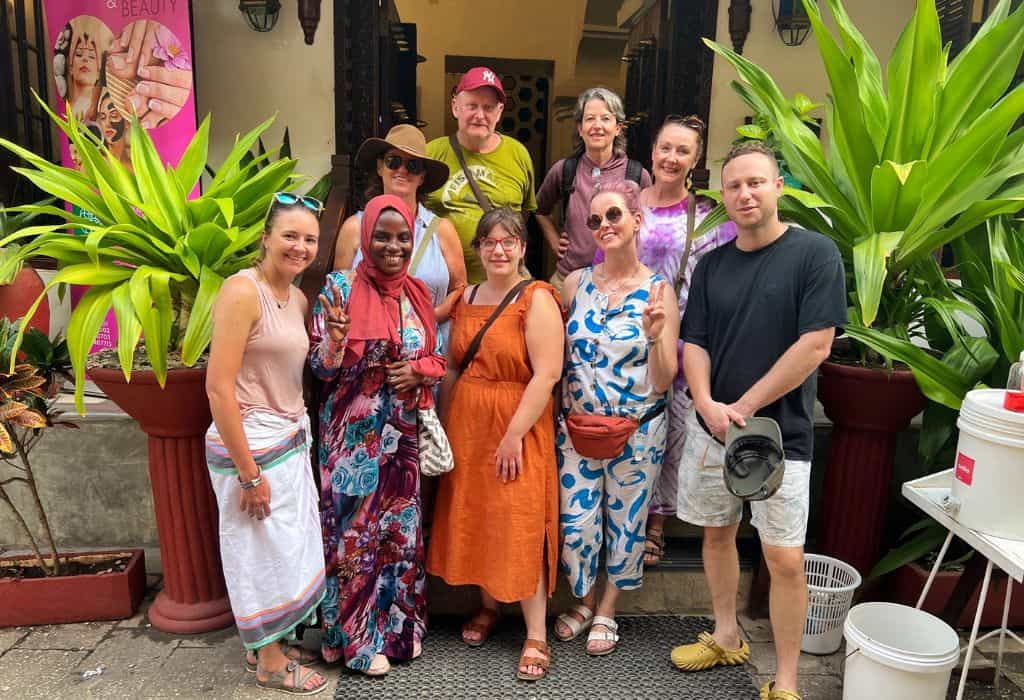
Africa Packing List – Miscellaneous
Mosquito Net
For the record, I’ve never taken a mosquito net with me to Africa, as a lot of places have them, but not all, so you may want to consider taking one.
It is also sometimes handy to travel with a small can of DOOM (insecticide) that you can spray around before you go to bed.
Electrical Tape
Occasionally you’ll find that the mosquito nets have holes in them, so I usually just bring a small roll of electrical tape to seal them back up. Electrical tape also works to fix broken bags, tents and the occasional car bumper.
Jewellery
For safety, I would leave any expensive jewellery at home. Ladies may want to consider a cheap, fake wedding to deter any guys who try to chat you up.
It is not advised to wear gold necklaces when walking around some city centres, like Nairobi or Mombasa.
Eye Mask
Helps for sleeping on planes, in hostels or if sharing a room with people. You can find some good ones here.
Ear Plugs
I never take these as I generally sleep quite well, but earplugs are good especially if it’s noisy at night on safari (hyenas can be loud), or you’re in shared rooms/dorms with snorers.
Neck Pillow
Not a necessity, but great for long plane or bus journeys – of which there will be many. You can find some great ones here.
Towel
If you’re staying at lodges, they will usually provide towels. But if you’re staying in hostels or camping, you may need to bring your own. I always like to take my own towel for the beach or if I’m doing any wild swimming.
You could substitute a proper towel for a microfibre towel. They are a bit crap at drying your body, but they dry themselves quickly and pack down small. I usually just take my normal towel.
Notebook/Journal & Pen
Pens are essential for border crossings and filling in arrival/departure cards. I always have people asking to borrow my pen!
Notepads are good for keeping track of all those amazing things you’ll be doing. Or you can just use the notes on your phone.
Padlock
For securing your stuff in the lockers in your hostels or locking your tent. Combination padlocks are best as you don’t need to worry about losing the key.
Travel Wash
Almost everywhere you stay will have some kind of washing facility, either for you to wash your own clothes or for someone to do your laundry for you.
You can buy small sachets of washing powder in most supermarkets. Alternatively, you can just wash your undies with shampoo in the shower. Works a treat.
Tent
For backpackers, a good way to save money on accommodation is to buy a small tent. This also helps if you’re a wing-it kind of person who doesn’t want to book much in advance. Even if there’s no room in the actual hostel, there will always usually be a space to pitch a tent!
Sleeping Bag
If you’re camping, you’ll need a sleeping bag. Some safari companies may provide these for you and most will have them for hire if not, saving you from having to carry one for the whole trip. The bag you need will depend on the season or where you are going. If you are travelling in the colder months, I’d recommend a 3 – 4 season sleeping bag.
Roll Mat
Campers may also need a roll mat. Some overland/safari companies provide them and some don’t so check before you go. I have a Therm-a-Rest that I used on Kilimanjaro and when overlanding through Africa.
Sleeping Bag Liner
A sleeping bag liner isn’t a necessity, but they are good if camping, as they keep you warm and are much easier to wash than a full sleeping bag, or if staying in hostels. I have a silk one which is good for hot countries and a fleece one that I take when I’m doing mountain treks.
Water Bottle
I recommend a LifeStraw water bottle as they allow you to drink from the tap by filtering your water. This will save you a bit of money and the planet.
The downside to these is that you can’t add things like rehydration sachets to them, so you may also want to take a regular water bottle like this one. or this one. You can then buy a big 5-litre bottle and decant from there.
You may also want to get a carabiner to attach your water bottle to your bag.
Small Mirror
These are especially useful when you’re camping or using shared bathrooms.
Swiss Army Knife/Bottle Opener
It’s sometimes useful to carry a small bottle opener with you. You could take something tiny like a Wallet Ninja or a Swiss Army Knife, which can be useful for many situations.
Pack of Cards
Also not a necessity, but a pack of cards is great for making new friends and passing the time on long journeys. I also highly recommend this game.
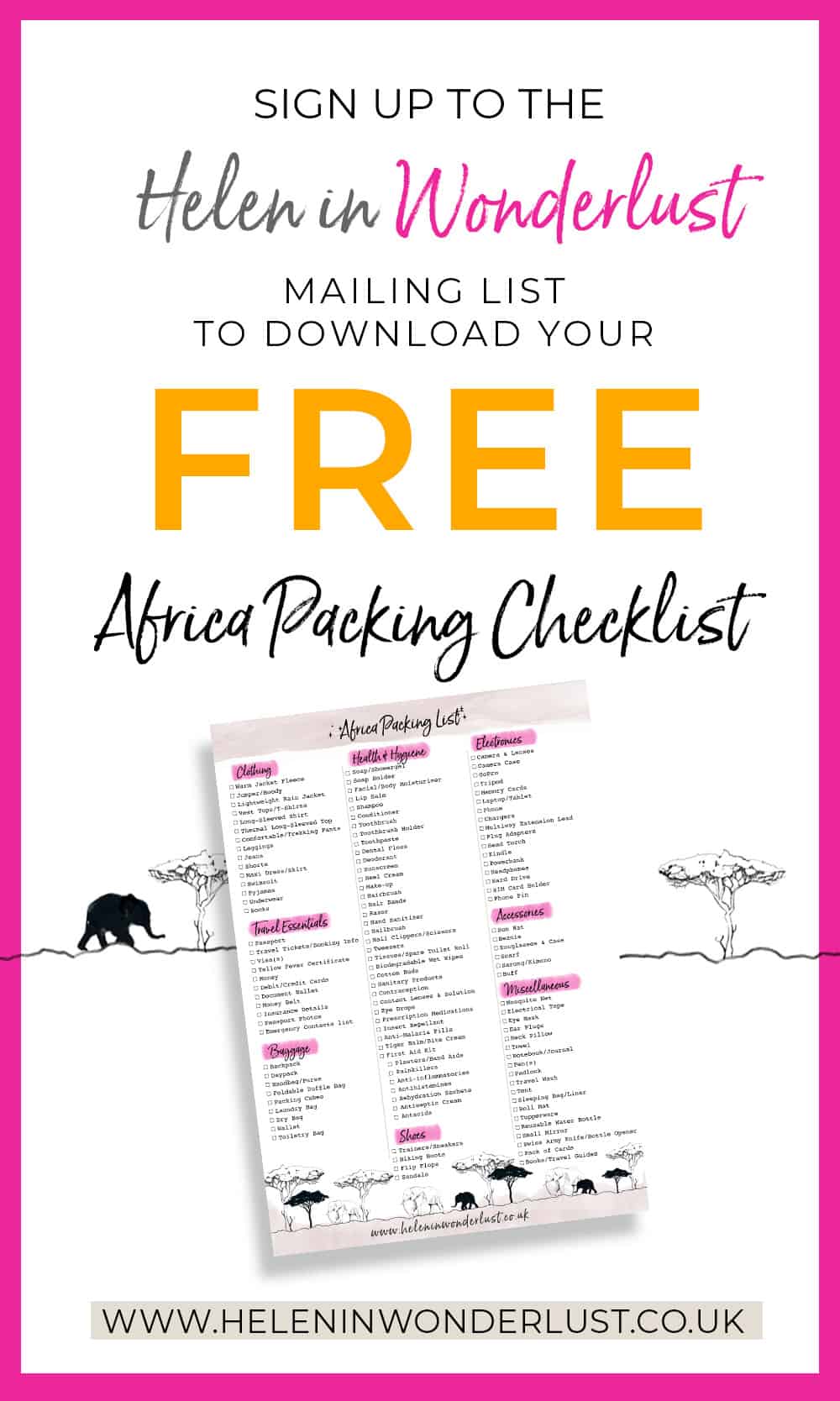 |
Subscribe to receive your FREE Africa Packing Checklist! |
I hope you enjoyed this Africa packing list and that it helps you to have a fantastic and well-prepared trip! Any other essential items you’d add to the list?
Other Africa posts you might enjoy…
- My Top Africa Travel Tips (from 11 Years of Travelling the Continent)
- My Top 12 Countries to Visit in Africa
- 39 Things You Need to Know Before Backpacking Africa
- The Ultimate Africa Travel Guide
- How to Plan Your Dream Trip to Africa (in 18 easy steps)
- The Safest Places in Africa
- The Independent Traveller’s Guide to Backpacking Africa
Did you know I run group tours in Africa? If you’d like to join a Rock My Adventure tour you can find out more here.
Pin This Post For Later

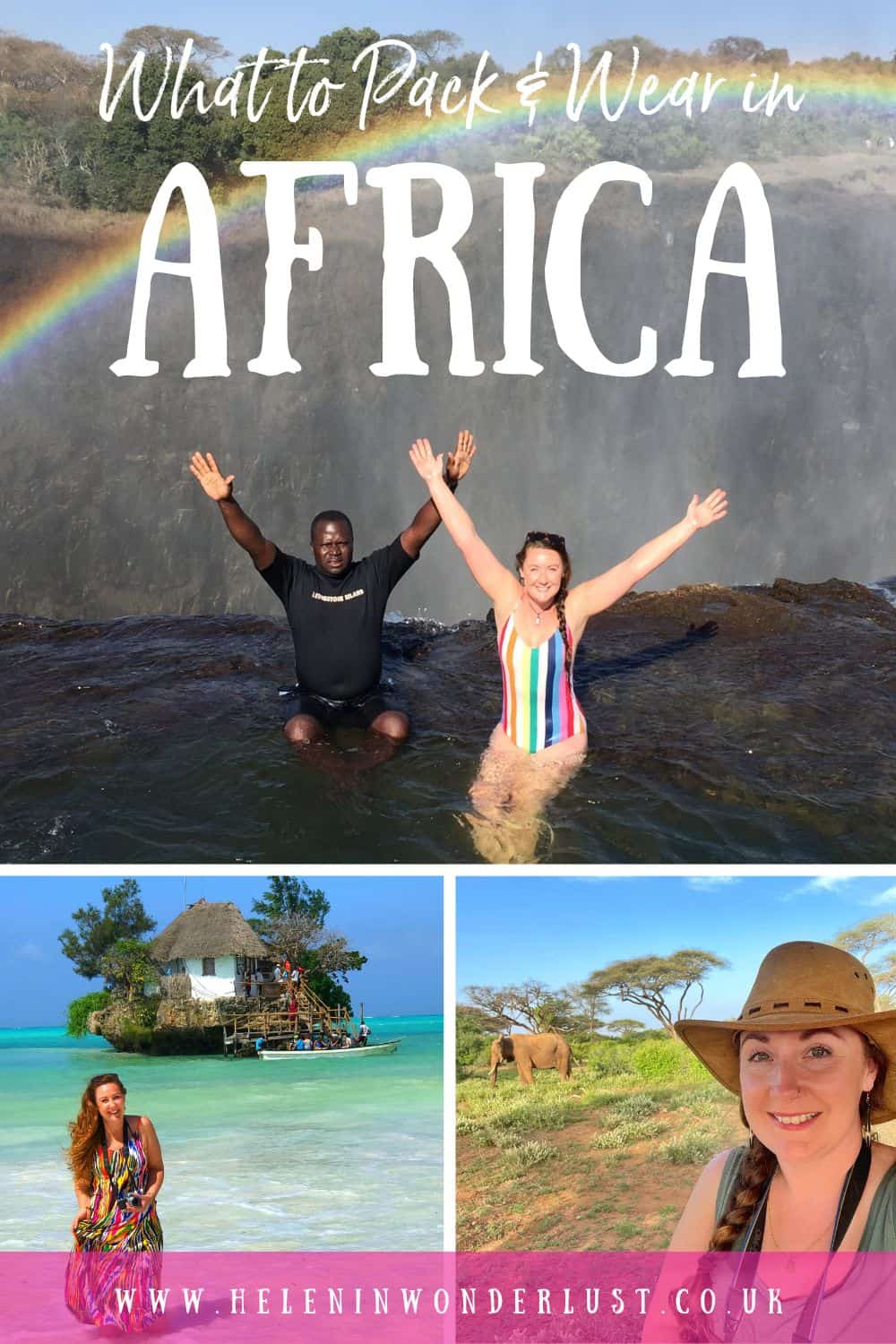

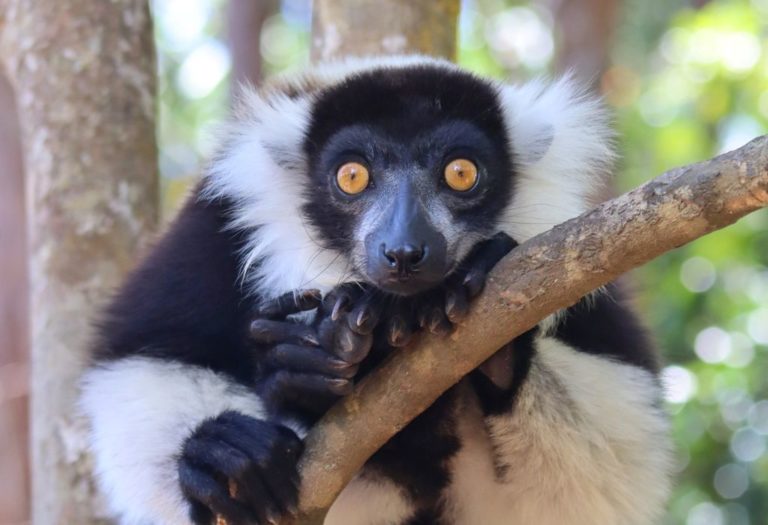
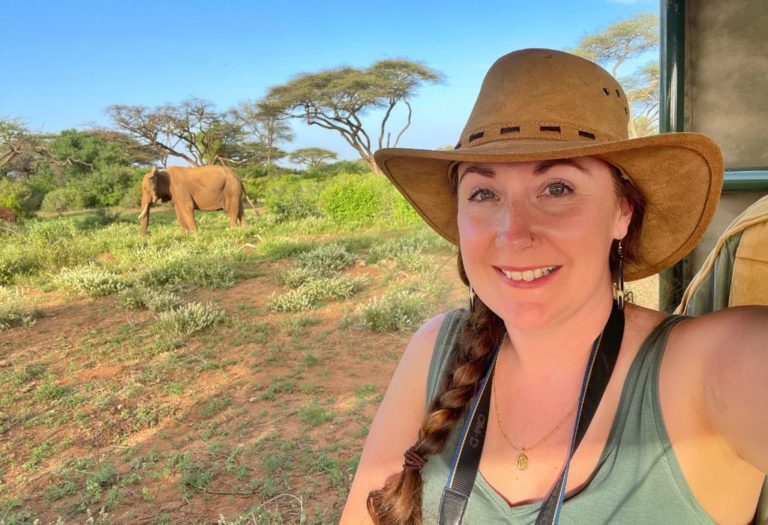
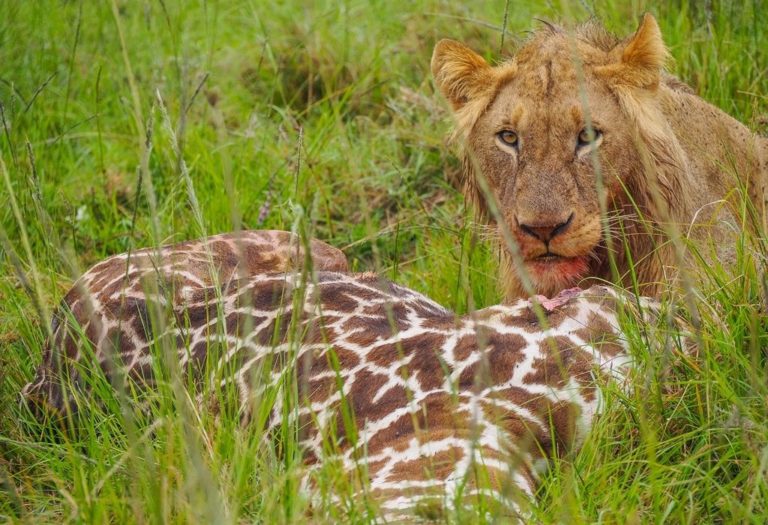
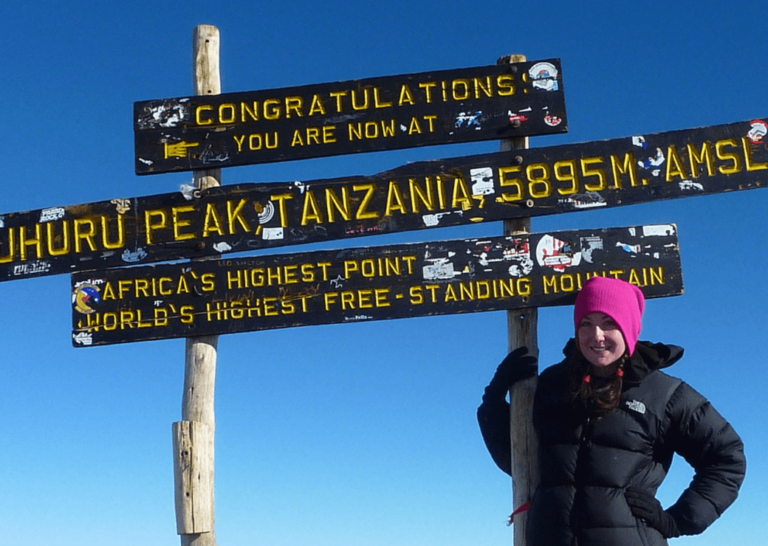
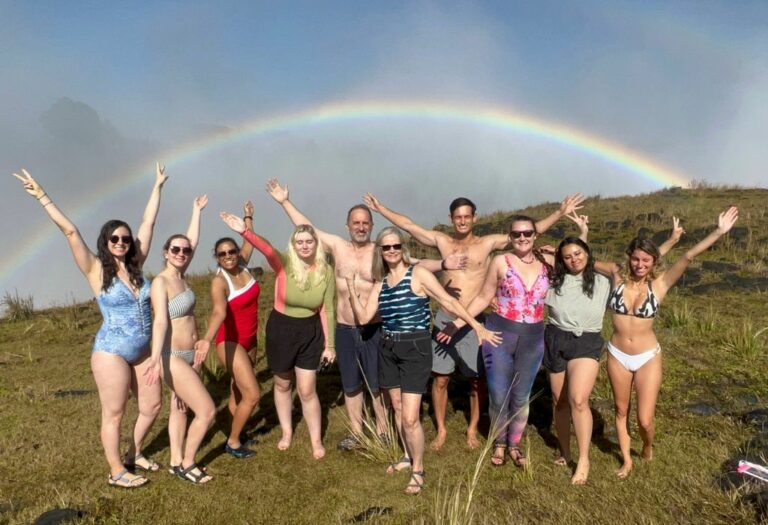
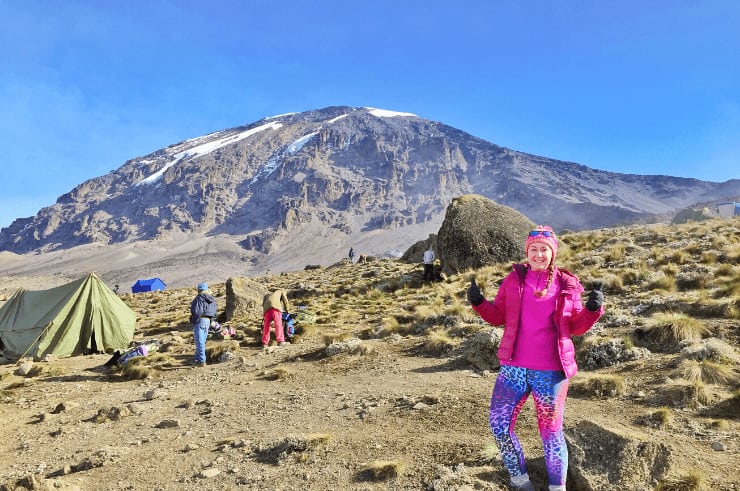
Some really great tips in here thank you! We’re currently preparing for our Africa trip starting in December! It’s hard to pack for such a diverse place for 6+ months so this helped thank you!
i wouldnt say this does not help, it did in a great deal. Africa is indeed a lovely place to visit.
I’m always a fan of a packing list post! And it’s so easy to forget that it’s actually really, really cold in some parts of Africa at certain times of year! I am dying to go back to Africa – I’ve only been to South Africa and all your Africa content always gives me itchy feet!
Planning to visit Africa hopefully by next year and it will be our first time going there.. And as a first timers, we really need these kind of tips!!! Thanks for sharing this very informative post!
Thanks, Helen for sharing such great tips on planning an adventure to Africa. They are so many things one can do in Africa. From the wildlife and safaris to warm the beaches.
First off your photos are just awesome! And you Africa packing list is sure on point. Very useful information.
Hi I am currently planning a solo 6 month trip to Africa, is it essential to bring your own tent or is it easy to hire one over there? As I am worried about it taking up a tonne of room in my backpack.
If you want to use a tent, I’d suggest bringing your own or buying one when you get there. It will be difficult to hire one (and probably more expensive) especially if you’re not starting or ending in the same place! There are lots of hostels too!
You said you get your malaria pills here and then some there? When you are asking for them here and in Africa what is it that you pick up (do you know the name)? And where do you get the malaria medication from once you are in Africa? A pharmacy or do you have to see a Dr.?
It depends where you are. In Southern Africa you often have to see a doc, but in East Africa you can buy them over the counter. I usually just ask for the same ones as I am already taking, malarone.
Such a comprehensive packing list! I’m always forgetting something when packing for my trips to Africa, so this will be so helpful. Can’t wait to download the printable checklist and get packing!